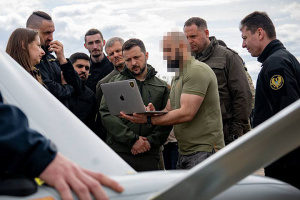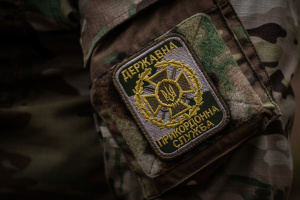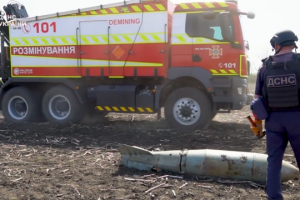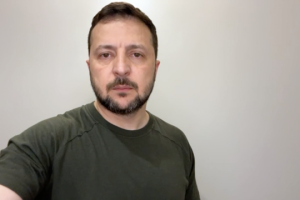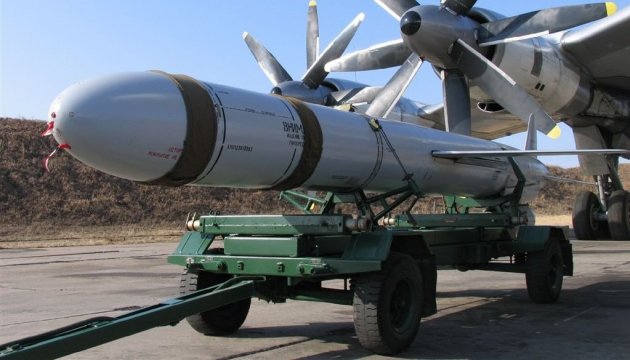
Missiles on Ukrainian-Belarusian border of Russia will not help
Russian President Vladimir Putin has proposed that the State Duma (he introduced a respective bill) allow the use of air defense means on the borders of Belarus with the EU and Ukraine. All this looks like ratification of the protocol introducing amendments and additions to the agreement between Russia and Belarus on the joint protection of the external border of the Union State in the airspace sector and the creation of a unified regional air defense system of Russia and Belarus, dated February 3, 2009. The protocol was signed in Minsk on November 2, 2016.
The report, which is available on the Duma's website, does not help give a concrete assessment of the consequences of the step that can be made by Russian lawmakers. Maybe just this excerpt: "changes are made regarding the organizational and staff structure of the Armed Forces of the Russian Federation and the order of the use of weapons and military equipment by those in charge of air defense while jointly performing combat duty tasks." Here we can see a hint of increasing the means of Russian air defense on the territory of Belarus and simplifying (that is, roughly speaking, without the consent of Belarus) the adoption of a decision on their application. And let's also note that the strengthening of Russian air defense in Belarus is simultaneous with preparations for large-scale Russian-Belarusian military exercises Zapad 2017. Perhaps it is an element of these exercises, an element that will not disappear after their completion.
However, it is enough for us to see an obvious thing: Russia is increasing its military presence on the territory of Belarus, near the Ukrainian-Belarusian border. And let those "means of air defense" not deceive us. First, there is and there can be no clear division of weapons into defensive and offensive. If Russia's air defense missiles do not allow Ukrainian aircraft to take to the skies to attack an enemy that invaded from the territory of Belarus, then these missiles are no longer defensive. Secondly, the means of air defense are in need of ground-based protection, which means a reason (or cover) to deploy Russian ground forces on the Ukrainian-Russian border.
There is another obvious thing: Russia concentrates its troops in the very center of Europe - near the borders of Ukraine, Poland, and Lithuania. And these are already the borders with NATO and the EU. And it does not matter under which "sauce" it is done (Zapad 2017 exercises). The aggressor always concentrates troops under the pretext of maneuvers. In addition, dozens of reports (with videos and photos) have recently been posted in social networks about the movement (mostly by rail) of Russian armored vehicles almost across the entire European territory of the Russian Federation.
How should the world and Ukraine react to all of this? We, of course, can once again recall the assurances of Belarusian President Alexander Lukashenko, which he made in Kyiv at a meeting with our president less than a month ago, that "the territory of the Republic of Belarus, friendly to Ukraine, will never be used for aggressive actions against Ukraine, and the Ukrainian-Belorussian border will never be a border of war." Remember and sleep calmly. But this, of course, does not fit us. Mr. Lukashenko can be a sincere man, but, unfortunately, he does not decide whether there will be a war between Ukraine and Russia, and that the Ukrainian-Belarusian border was never the border of war depends not on the verbal assurances of anyone, be it the president of Belarus or Russia, but on the fact that there will be no Russian soldier at this border. And they are there, and tomorrow their number will be bigger.
We have no reason to suspect Ukraine's top ranking officials - political and military – of naivety, inability to see and take obvious things into account. And how they react to it is another topic, and we hope that it will be adequate.
For obvious reasons, NATO countries can feel much calmer than Ukraine. But they also prefer not to leave the "maneuvers" of Russian troops unanswered. NATO has already announced the intention to strengthen its military presence at the time of the Zapad 2017 exercises in the Baltic States, in particular by doubling (from four to eight) the number of fighter planes in Lithuania. And let's mention the announced plans of the United States for the deployment of its Patriot air defense systems in Estonia.
In general, the most important thing is that the concentration of Russian troops, in other words, Russia's "muscle game," is taking place against the background of anti-Russian sanctions tightened by the West. That is, through a demonstration of strength and intransigence Russia continues to respond to the whole world. However, nobody, by and large, is afraid of these demonstrations any longer. Yes, they beware, yes they do not want to bring the case to armed confrontation, but they will not fulfill the geopolitical interests of Russia and "forgive" its aggression. And any "maneuvers" can no longer break this downward trend for the Kremlin.
Yuriy Sandul. Kyiv

